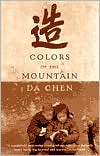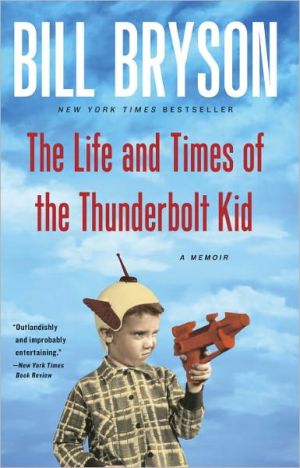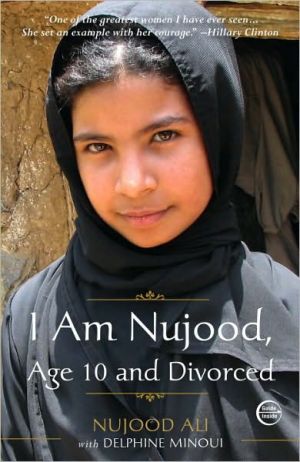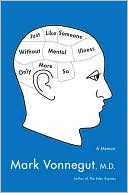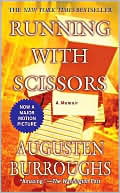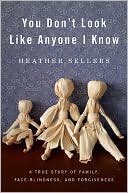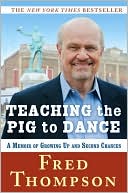Colors of the Mountain
Colors of the Mountain is a classic story of triumph over adversity, a memoir of a boyhood full of spunk, mischief, and love, and a welcome introduction to an amazing young writer.\ Da Chen was born in 1962, in the Year of Great Starvation. Mao Zedong's Cultural Revolution engulfed millions of Chinese citizens, and the Red Guard enforced Mao's brutal communist regime. Chen’s family belonged to the despised landlord class, and his father and grandfather were routinely beaten and sent to labor...
Search in google:
Colors of the Mountain is a classic story of triumph over adversity, a memoir of a boyhood full of spunk, mischief, and love, and a welcome introduction to an amazing young writer.Da Chen was born in 1962, in the Year of Great Starvation. Mao Zedong's Cultural Revolution engulfed millions of Chinese citizens, and the Red Guard enforced Mao's brutal communist regime. Chen’s family belonged to the despised landlord class, and his father and grandfather were routinely beaten and sent to labor camps, the family of eight left without a breadwinner. Despite this background of poverty and danger, and Da Chen grows up to be resilient, tough, and funny, learning how to defend himself and how to work toward his future. By the final pages, when his says his last goodbyes to his father and boards the bus to Beijing to attend college, Da Chen has become a hopeful man astonishing in his resilience and cheerful strength. Publishers Weekly The grandchild of a former landlord—China's most spat-upon class after the Revolution—Chen was regularly beaten to a pulp by other children and, despite performing at the top of his class, repeatedly denied the right to continue at school. His family of nine—including his brother, three sisters, grandparents and parents—subsisted on moldy yams alone for entire winters. Meanwhile, his grandfather was attacked randomly by neighbors and forced by the local authorities to guard lumber and tend fields. Chen's father, with his prerevolutionary college education, eventually managed to extract himself from the labor camps by becoming skilled in acupuncture (he used the biggest needles on the hated "cadres"). At the climax of this survival story, Chen, the book's first-person narrator, and his older brother, Jin, both compete in China's first nationwide, open educational tests in 1977: "We were out to make a point. The Chen family had been dragged through the mud for the last forty years.... Now it was time." Scoring among the top 2% of the country, the 14-year-old Chen achieved his dream of attending Beijing Language Institute. According to the epilogue, after graduating with high honors, he wound up in New York at age 23, where he won a scholarship to attend Columbia Law School, and later landed a job on Wall Street and married a doctor. Despite the devastating circumstances of his childhood and adolescence, Chen recounts his coming of age with arresting simplicity. Readers will cry along with this sad, funny boy who proves tough enough to make it, every step of the painful way. Copyright 1999 Cahners Business Information.
In September 1971, I entered third grade. Dad had come back from the camp on the mountain and was at another reform camp ten miles away from our town. They made him dig ditches from morning to night to expand an irrigation system that eventually failed to work, while continuing to press for more confessions about my uncle in Taiwan, which had always been China's sworn enemy. \ Sometimes I was allowed to visit Dad and bring him food. I would stand on the edge of the work site, searching for signs of my father among the hundred or so other people being "reformed." Tired, curious faces would look at me, word would pass on down the line, then eventually out would come my dad from the ditches, his back straight, head held high, and a dazzling smile on his face for his son as he busily dusted off his ragged clothes. I would have nothing to say and could only look at his blistered hands, while he asked how everybody was and how my schoolwork was going. Then it was time to leave; if I delayed, the foreman would chase me off the site with his wooden stick.\ Grandpa was suffering all the time now. An expensive medication was bought to cure him, but he was outraged when he heard its price, since he knew that what it cost could have bought the whole family some decent food for a month. Despite his frail condition, he was still ordered to go to the rice fields every day to chase the birds. After he had had an especially bad night, I brought in another petition. The cadre ripped it to pieces in front of me.\ "The stinking dogshit!" he screamed, and spat on the floor. "Tell your no-good grandpa to wake up. I've already given him the lightest job and he doesn't appreciate it. What does he want, to sleep in his warm bed all day and plot his revenge against our Communist system? Well, that's not going to happen with me in charge." He thumped his chest. "Do you hear me? And as for you, you little shit, I don't want to see you this often. You'll be in trouble yourself one of these days, running all these errands for your no-good family."\ I ran home angrily and told Grandpa the answer was no.\ My eldest sister, Si, had graduated from junior high school. Brother Jin had had to stop one year short of completing it, and Ke and Huang were asked to leave before finishing elementary school. The Red Guards took over the classroom and put some teacher on a humiliation parade. They had made the lives of landlords' children and grandchildren miserable. Si's classmates had hacked at her hair with scissors, which made her look like a mental case, and Jin, while he was still in school, had been constantly hassled and beaten by his classmates.\ One day we received a notice from the local school authorities. It read, "Due to overcrowding in our school system, it has been decided by the Communist party that the children of landlords, capitalists, rich farmers, and the leftists will no longer be going directly to Junior high or high school. This new policy is to be implemented immediately for the benefit of thousands of poor farmers." The curt notice didn't explain the logic behind such a decree. But we understood that they considered us the enemy and a danger to their world. Education could only further our cause and threaten theirs.\ Thus I became the last student in our family. Every day Morn would whisper to me before school that I should cherish this precious opportunity. I should work hard and be a good student, or I would have to stop school like my siblings and become a farmer or a carpenter, with no hope for a better future. She said the more they wanted you out of school, the more you should show them how good you are. She admonished me to behave myself and not give them reason to throw me out.\ The pressure weighed heavily on me. The idea of being a farmer for the rest of my life, working in the fields unceasingly, rain or shine, chilled my bones. I saw my sisters and brothers, still so young, getting up before dawn to cut the ripened rice in darkness before the biting sun made work unbearable. They came home by moonlight after laboring a full day, their backs cramped and sore, cuts on their fingers, blisters covering their hands. Sometimes they were humiliated because the older, more experienced farmers in the commune trashed them for making mistakes. And sometimes they were angry because they were made to work the heaviest jobs, like jumping into manholes to scoop up manure. At night, my sisters often cried in Mom's arms. They were no longer children.\ I looked at school in a different light. It was still a fun place, but now it was much, much more. It was the key to a bright future. I knew if I could somehow stay in school, I would do well. There was hope. I arrived at school early every morning and volunteered to sweep the classroom and clean the blackboard. I still managed to have my morning reading assignment done before the others arrived so that I had time to play and help those who needed some tutoring. But the new teacher wasn't the least impressed with me. I sometimes became aware of him staring silently at my back as I sat alone in class doing my work. He was cool and abrupt and seemed disgusted with the little boy who wanted so hard to please him.\ My third-grade teacher was a young man about twenty-five years old. He had icy, protruding eyes, and thin lips that squeezed out his words slowly and deliberately. His nose was pointed, with long, black hairs sticking out of both nostrils, and a receding chin that melted into his long neck. He had a habit of looking at his reflection in the window, preening and recombing his hair before entering the classroom. His name was La Shan.\ La Shan invited many of his students to his dormitory on campus, where they played chess and talked long after school. He also organized basketball games among the students, but I was never included. I stood at a distance, watching them play with the energetic young teacher, laughing and shouting. When I sometimes quietly inquired about what they did in his dormitory, my friends Jie and Clang would tell me that they played and listened to La Shan talk about politics, about things like the class struggle and what to do with bad people like landlords and American special agents.\ I became quieter and less active in his class. He continued to act as if I didn't exist, and I became more and more isolated, but I still carried on my work with pride and always scored the best in quizzes. I missed my teacher, Mr. Sun, terribly.\ In the back of each classroom there was another blackboard on which the best poems or compositions by the students were displayed. It was an honor to have your work posted, and mine used to appear there every week. Many years under my grandfather's tutelage had made me the best calligrapher in the entire school, and I had won school-wide competitions against older students. But since La Shan had become my teacher, my work never appeared on the blackboard. He also deprived me of the task of copying the poems onto the blackboard with chalk, a task only students with the best calligraphy were allowed to do.\ I was no longer the head of the class. In my place stepped the son of the first party secretary of Yellow Stone commune, the most feared man in town. La Shan also made him the head of the Little Red Guard, a political organization for children. I was the only one in class who was not a member. I coveted the pretty red bands worn on their arms and had applied to join, but La Shan told me I needed to make more of an effort, that he wasn't sure I was loyal in my heart to the Communist cause like other children from good working-class families. Whenever a Little Red Guard meeting was held, I was asked to step outside. I would hang around the playground by myself until they finished.\ My whole life seemed to be drifting away from the crowd. It puzzled me and kept me awake at night as I stared up at my mosquito net. I didn't tell my family about any of the changes; they already had enough to worry about. At home, I pretended to be cheerful and told them how well I was doing in school. Once a cousin of mine mentioned to my brother that I was no longer doing the blackboard copying. I made up a story, telling my family that I needed a change, so was giving my fellow students a chance.\ Because I was driven and still confident in my abilities, I worked even harder and volunteered even more for tasks before and after school. It was like throwing myself against a stone wall. The harder I tried, the more the teacher disliked me. He even criticized me in front of all the students about my overzealous attempts to win his praise. This upset and confused me. What more could I do to try and fit into the place that I once used to love?\ My first real brush with La Shan came when he was collecting the weekend homework. The assignment had been to copy a text of Chairman Mao's quotations, but my work had been soaked in the rain on the way to class and I had thrown away the smeared, useless paper, intending to redo it in the afternoon. When he found out I had nothing to turn in, La Shan called the class to attention. "Students, Chen Da has not done his homework, which he knew was to copy the text of our great Chairman Mao. It is a deliberate insult to our great leader."\ "I did the homework like I always do," I protested loudly, "but the rain got it all wet."\ The whole class looked at me quietly.\ La Shan turned red, the muscles in his cheeks twitching. He had lost face because I had answered back.\ "What did you do with it?" he demanded.\ "I threw it into a manhole on my way to class because it was all messy." The students laughed.\ " "at did you say?"\ "I said I threw it into a manhole," I screamed back. I knew I was acting irrationally, but couldn't stop.\ "You threw Chairman Mao's quotations into a stinking manhole?" His face flamed and spittle flew from his mouth with each word. "Do you realize how severe an offense you have just committed?"\ A deadly quiet came over the class. Everyone looked at me, waiting for my reaction. In that split second, I glimpsed the possible serious trouble he could make if he chose to. Mom's words, "Stay out of trouble, " rang in my ears.\ I felt dizzy, as if I had been hit with a club. I already regretted my actions and wished I could take everything back, but it was too late, the damage had been done. I thought of Mom and Dad and the trouble I might have just brought to my family if the teacher blew this thing up. My head began to pound.\ "I am sorry, honorable teacher. I will redo my homework and hand it in as soon as possible."\ He stared at me silently with his icy eyes, looking like a wolf that had just caught a rabbit in a trap.\ "You think it's going to be that easy?" He shook his head slowly. "Everybody!" His voice cracked out. "Let's have a vote. Those who wish to have Da thrown out of our classroom, raise your hands."\ There was a moment of silence. Then slowly, the son of the party secretary raised his hand. A few more hands from the La Shan club went up. Next the whole class raised their collective hands, even my friends Jie and Clang.\ I felt trapped. I felt half-dead. I couldn't understand how even my best friends could vote against me.\ "Please, I don't want to leave this class. I would like to stay."\ "We'll see about that. Class is over for the day," La Shan said, slamming his book closed and walking out of the room, his disciples trailing behind him.\ I walked home in a daze. Nobody talked to me. I redid my homework and turned it in right away. I waited for La Shan to throw me out of school, but nothing happened. I sat in the back corner of the class by myself. No one talked to me, not even my friends. Occasionally, La Shan would throw disgusted glances my way. The worst thing was when he disparagingly called me "that person in the corner" without looking at me. Why did he take the whole thing so personally, as if I had desecrated his ancestor's tombstone?\ Then one day during the morning exercise break La Shan called my name and asked me to stay behind while the others noisily poured out of class.\ "I have received reports about you," he said, pacing in front of the classroom. "Really bad reports."\ My heart began to race. "What kind of reports?"\ "You have been saying antirevolutionary and anti-Communist things to your classmates, haven't you?"\ "No, I haven't." He was trying to paint me as a counterrevolutionary, just as they had done to Yu Xuang, a fifth-grader whom they had locked in the commune jail for further investigation. It was a dangerous situation.\ "I have never done anything like that! You know that!" I said, using the best defense a nine-year-old could muster.\ "I have the reports here"-he waved a thick sheaf of paper-"and I can ask these people to testify against you if necessary."\ "The people who wrote those reports were lying. I have never said anything against our country or the Communist party."\ "Shut up! You have no right to defend yourself, only the chance to confess and repent," he spat out angrily. His voice deepened. "Do you understand what kind of trouble you are in now?"\ "I have nothing to confess!" I was losing control again. My throat dried up and my arms began to tremble.\ "I said, shut up! You have today and tonight to write a confession of all the treasonous things you have said, to explain the motivation, and to state who told you to say these horrible things. Like perhaps your father, mother, or your landlord grandparents."\ He was trying to involve my family. They would put my dad in prison. They would take Grandpa out into the street and beat him to death.\ "They did not tell me to do or say bad things against the party! They didn't!" I cried. I couldn't afford to have my family dragged into this. I was scared and began to sob helplessly. The sky had just caved in and I felt that nobody could help me. I would be a young counterrevolutionary, a condemned boy, despised by the whole country. I would be left to rot in a dark prison cell for life. That was what had happened to Shi He, another high school kid, who was caught listening to an anti-Communist radio program from Taiwan, and worse, to the banned Teresa Deng's love songs. His prison sentence had been twenty years.\ I don't remember how long I cried that morning. When I walked home alone in the afternoon's setting sun, I felt the weight of shackles already around my ankles.\ A condemned man at the age of nine! Confession tomorrow! The thoughts played over and over in my mind.\ When I got home, I told Mom what had happened and she started sobbing, hitting her face and chest and pulling out her hair. She mumbled hysterically, in broken sentences, that their generation had brought the curse to the next generation. After a while, she sat down quietly, weak and limp like a frightened animal. Finally, she got up and sent Si and Jin to Dad's camp to ask for advice. They got to talk to him by using the excuse that Mom was very sick again.
\ Publishers Weekly - Publisher's Weekly\ The grandchild of a former landlord—China's most spat-upon class after the Revolution—Chen was regularly beaten to a pulp by other children and, despite performing at the top of his class, repeatedly denied the right to continue at school. His family of nine—including his brother, three sisters, grandparents and parents—subsisted on moldy yams alone for entire winters. Meanwhile, his grandfather was attacked randomly by neighbors and forced by the local authorities to guard lumber and tend fields. Chen's father, with his prerevolutionary college education, eventually managed to extract himself from the labor camps by becoming skilled in acupuncture (he used the biggest needles on the hated "cadres"). At the climax of this survival story, Chen, the book's first-person narrator, and his older brother, Jin, both compete in China's first nationwide, open educational tests in 1977: "We were out to make a point. The Chen family had been dragged through the mud for the last forty years.... Now it was time." Scoring among the top 2% of the country, the 14-year-old Chen achieved his dream of attending Beijing Language Institute. According to the epilogue, after graduating with high honors, he wound up in New York at age 23, where he won a scholarship to attend Columbia Law School, and later landed a job on Wall Street and married a doctor. Despite the devastating circumstances of his childhood and adolescence, Chen recounts his coming of age with arresting simplicity. Readers will cry along with this sad, funny boy who proves tough enough to make it, every step of the painful way. Copyright 1999 Cahners Business Information.\ \ \ \ \ KLIATTBorn in 1962, Da Chen grew up in rural China. His parents and grandparents were landlords; they were considered the lowest of the low and all family members were treated terribly. Da Chen was the youngest of five children. Despite his apparent intellectual abilities, Da was mercilessly tormented and actively discouraged from most academic activities. His best friends consisted of some of the local hoodlums who spent their time gambling, smoking and having a good time. Da felt that he had no future: he was doomed to a life as a farmer, as were his brothers and sisters. Then Mao died and slowly things changed. Opportunities opened up and there was talk of college even for those in rural areas. Da realized that his only means of escape was to go to college, so he committed himself to study. Trying to make up for missing years, he studied from sunrise to 11 at night. His older brother also decided to try to pass the college exams and studied with him. We follow Da's early life. What impresses the reader is his ability to look at his life and realize he must change. His single-minded determination is a testament to his strong family support. Both Da and his brother passed the exams and were accepted at colleges, obviously the beginning of a new life for both of them. In telling his own story, Da presents a fascinating look at growing up in a changing China. KLIATT Codes: SA—Recommended for senior high school students, advanced students, and adults. 1999, Random House/Anchor, 310p, 21cm, 00-698913, $13.00. Ages 16 to adult. Reviewer: Robin S. Holab-Abelman; White Plains, NY, May 2001 (Vol. 35 No. 3)\ \ \ VOYADa Chen grew up during the Cultural Revolution in China as the child of intellectuals. He and his siblings were taunted by teachers and students alike, then kicked out of school by government officials. Da persevered, however, as he learned to play the violin, studied English with an elderly Christian, roamed town with a gang of delinquents, and replaced his sister as a factory worker. Eventually he was accepted back into school before taking his English skills to Beijing University. His family also persevered. His father learned acupuncture to supplement his meager state wages, and one of Da's brothers made it into university as well, years after being forced out of high school. This volume is an excellent coming-of-age story. Da learns about love, ambition, respect, and true friendship from his family, friends, and mentors. That he overcame such odds to enter one of China's most prestigious universities is a testament to his own and his family's will. In a time when Cultural Revolution memoirs are full of the nastiness of the favored, it is wonderful to read about the teacher who took Da under his wing and about his elderly eccentric tutor. The translation of Chinese slang into American slang, however, causes the story to lack flavor at times. The American speech pattern is often jarring and takes away from the Chinese setting. This is an unfortunate blot on an otherwise marvelous work that is recommended for older teens. VOYA CODES: 4Q 3P S (Better than most, marred only by occasional lapses; Will appeal with pushing; Senior High, defined as grades 10 to 12). 1999, Random, Ages 16 to 18, 311p, $25. Reviewer: Kendall Diane Brothers\ \ \ \ \ Library JournalOver the past few years, Chinese memoirs dealing with adolescence in Communist China, written mostly by women who subsequently moved to the United States, have proliferated. These include Anchee Min's Red Azalea, Jaia Sun-Childers's The White-Haired Girl: Bittersweet Adventures of a Little Red Soldier, and Rae Yang's Spider Eaters. This work, written by a young man who came of age after the Cultural Revolution, is similar in some respects: Chen's bourgeois family was persecuted by the state, and he eventually left China to live in the United States. But Chen's story is different from the others because he grew up in rural, not urban, China. It carries an easily recognizable theme (boy falls in with hoodlums, then pulls himself up to succeed against all odds), which is at once uplifting and unsatisfying. Chen, who attended Columbia University Law School on a full scholarship and has worked on Wall Street, has written a clear and fast-moving book, but readers looking for either a modest narrator or a way to make sense of recent events in China will be disappointed. Copyright 1999 Cahners Business Information.\ —Peggy Spitzer Christoff, Oak Park, IL\ \ \ \ \ ChangColors of the Mountain is a completely engrossing coming-of-age that's surprisingly free of cynicism or bitterness. His stories are made all the more poignant by the wonder and vulnerability in the voice of their child narrator.\ —Newsweek\ \
